Get Inspired
Finding Hope with PCS: Kylie Lowell's Recovery Journey
Kylie Lowell loved sports and being active until a concussion in middle school during basketball forced her to stop playing. The once energetic teenager battled with symptoms of Post-Concussion Syndrome (PCS), which forced her to leave school. She felt depressed and isolated. Shortly after, Kylie came across CLF's Inspiring Stories page which showed there were others like her, and she was not alone. Reading about these similar experiences and connecting with a CLF Mentor greatly helped in her recovery journey. Below, Kylie shares her story to spread awareness around PCS and hopefully inspire anyone else who may be struggling.
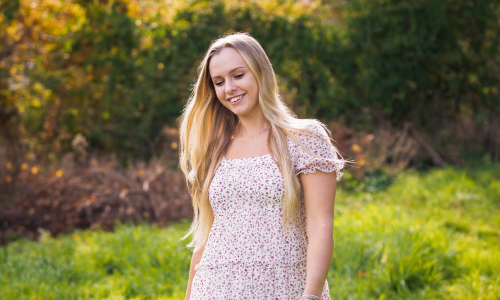
By Kylie Lowell
My name is Kylie Lowell and I am a peer support volunteer for the Concussion Legacy Foundation (CLF). Before my concussions I played three sports and was active with my school and community. However, after getting hurt I had to give up the most important thing to me: sports. Basketball was always the sport I gave my body to. I loved the excitement and quickness of the game. While I was in eighth grade I got the opportunity to play on the varsity team. Unfortunately before getting the chance to, I got a concussion - while diving for the ball, a girl from the other team slammed her elbow into the side of my head. From that force, I fell backward and hit the back of my head on the gym floor. I do not remember much of the incident as I had blacked out for a few seconds. I was taken out of the game and did not return to play. I missed out on playing on varsity but I had no idea what was going to become of my future after that night.
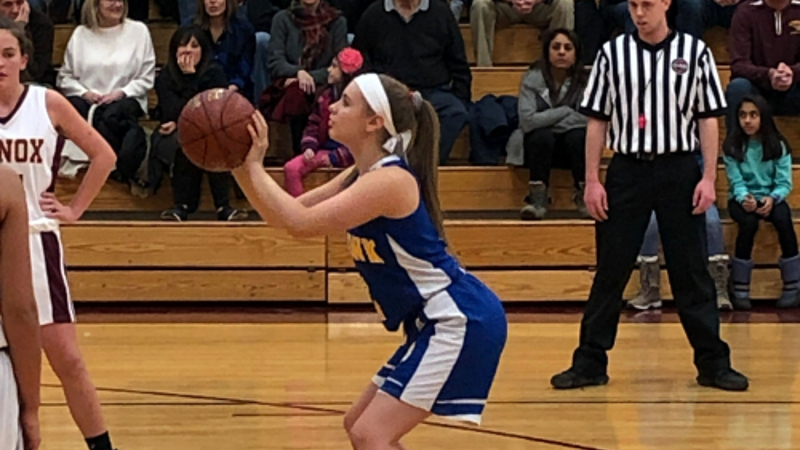
The hardest part for me was the loss of sports and my friends. When I knew my sports career was over, I felt like a big piece of me had died. Sports were absolutely everything to me and I could never picture myself without them. Everyone would tell me I was born to be an athlete. Sports were my outlet and I dedicated everything to them because it was what brought me the most joy. To have to sit back and watch everyone else get to play while I couldn't was and is one of the hardest pills to swallow. About two years into having Post-Concussion Syndrome (PCS), I was diagnosed with dysautonomia which is a disruption to the part of my nervous system that controls breathing, heartbeat and digestion. I went from being able to run up and down the basketball court as many times as I wanted, to barely being able to walk across my yard without feeling like passing out. Going for simple walks, walking up the stairs, or carrying anything over 10 pounds made my heart rate go up to 190 bpm and above. It made my head throb and I felt as though I could collapse. This was and still is extremely difficult for me to come to terms with. I have always been an active person but now have to start over doing very little at a time because of the dysautonomia.
School was also one of my biggest challenges. I had no support from my school and I felt like I was not wanted there anymore. My friends were not compassionate and teachers stopped asking about me. I lost almost all of my friends simply because they thought I was faking and I was not a convenient friend due to my absence in school. When doctors would ask me to describe how I was feeling, I became speechless. I could not find the words to describe what I was going through when the symptoms were not visible. My way of processing information and being able to communicate it became so different. It is hard for me to reach the information I have and communicate that verbally, which is very frustrating.
The emotional toll of PCS was something I never would have expected. No one had warned me of the effects it could have on my mental health. I cannot stand the noise of people's utensils and plates hitting together; it's like nails on a chalkboard. There were endless days and nights of making my room completely dark and putting a pillow over my head to try and drown out the sounds. All I could do was sob and scream into my pillow begging for the pain to go away. The pain was unbearable. It was endless. I felt like I was quite literally going crazy. It was so frustrating to have to feel like a completely different person and not understand why. One of the hardest parts was the people around me could not see the pain I was in, so it was hard for them to believe me. After I had lost my friends and took a medical leave I hit absolute rock bottom. I was at home everyday with no contact from my “friends” and I refused to leave the house. At this time I was still not being seen by the correct doctors and had no accommodations to protect me in school. I became isolated and it caused a huge disruption in my family. It was like I had left the world for a few years. I had never felt so alone and like I had no reason left to be around, a feeling I would never wish on anyone.
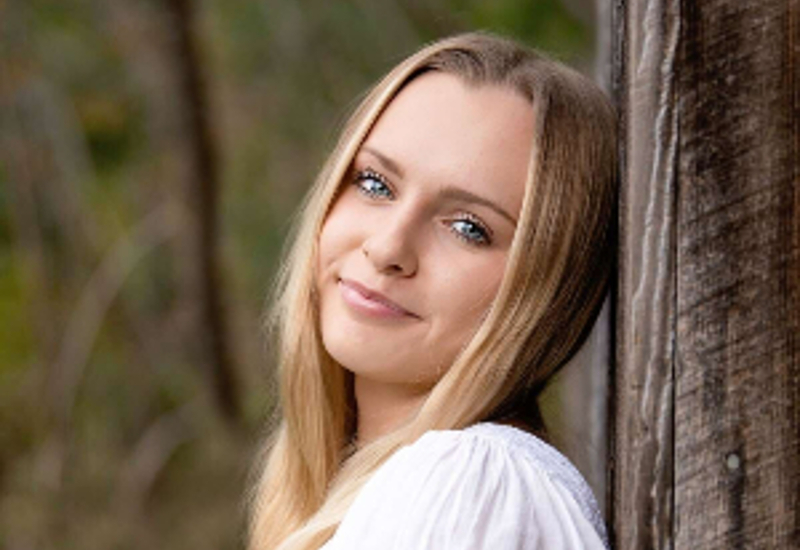
However, the year after I had hit rock bottom my spirits were lifted for the first time in three years. While desperate for answers we came across the Concussion Legacy Foundation, and the Inspiring Stories section. The first link I clicked on was "personal stories." I started to scan and read these stories of other teenagers with PCS who were experiencing everything I had been trying to put into words. The instant flood of relief and weight off my shoulders was indescribable. I could not believe it. I cried to let it out, knowing that everything I had felt was real and for the first time I knew I wasn't alone. Two years before I had found CLF, I did not see a future for myself and the isolation took over me. Now, I felt a burst of hope and knew recovery was possible. After taking a medical leave my sophomore year, I had begun to think about other schooling options as I did not feel welcomed back to my sending school. I started to attend an alternative high school called Mount Tom Academy. I began at Mount Tom Academy as a sophomore but was able to complete three years of academic classes in two years. I had worked harder than I ever thought possible and completed classes during the summer without teacher instruction. I began to believe that graduation was in my grasp and I wouldn’t be held back by my injury. After starting to get the right treatments I noticed my symptoms were starting to improve. I had learned how to manage my symptoms better and that was a huge help for myself.
I had been seen by many doctors and medical professionals and none of them could give me answers. It was not until I saw Dr. Neal McGrath that I finally felt like I was not crazy in how I was feeling. He was kind to me and did not question my symptoms. He was the first doctor who started to give me the appropriate accommodations for school. After a few months of seeing him, we had found the Concussion Legacy Foundation and Dr. Robert Cantu. As I started to see Dr. Cantu, my health improved and I was able to become successful in school.
As I have been involved with CLF throughout my recovery, I have experienced great opportunities in a short amount of time. About a year after I had been mentored by someone at CLF I was asked to be in a video for their gala. I told everyone who was watching about me and my relationship with my mentor. I felt so empowered during the process because I knew it would at least help someone out there and that brought me comfort. After having a life-saving experience with CLF I became a mentor to other teenagers. I wanted to give back and hopefully help others like I was helped. I have been a mentor for about two years now and recently I was featured on Boston 25 News. The interviewer had seen my video and wanted to interview me about my concussions and mental health. I was again so thankful to CLF and Fox 25 for giving me the platform to hopefully help others know they are never alone.
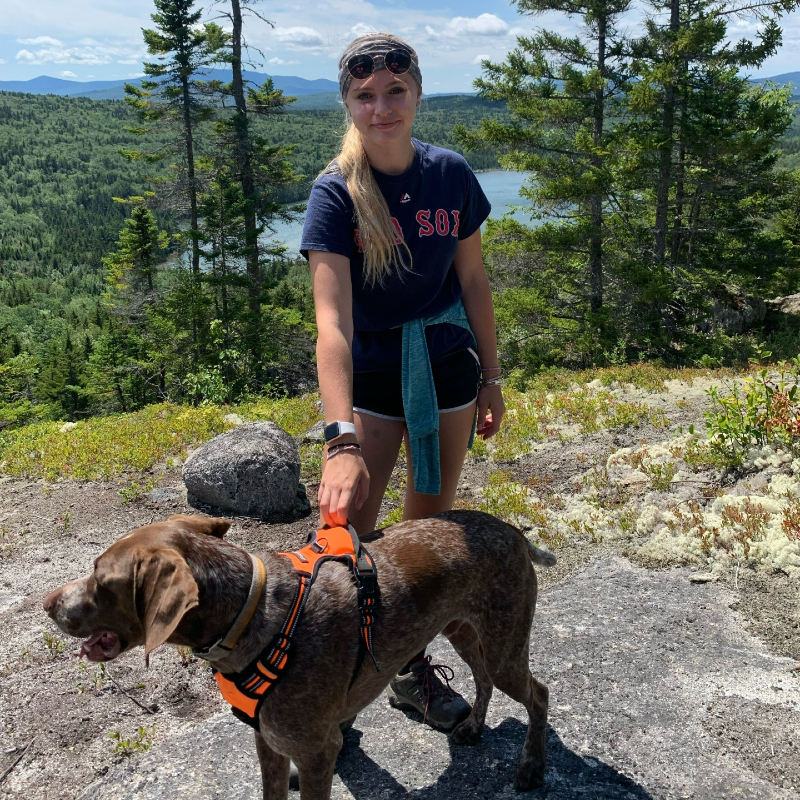
My advice to others who may be struggling is to reach out. I know it can be scary but reach out to CLF, me, or anyone else on here because we all understand you. When I was connected with my mentor through CLF it helped me so much to be able to talk to someone who understood every single feeling I had when so many others did not. I would also tell you to stick with your gut and know that what you're feeling is absolutely real even if people tell you it is not. It can be so discouraging when no one will believe you but I believe you. Always stick to your gut and know it WILL get better. I think it is important for people suffering from PCS to know that it is OK to let yourself have these feelings. I have held in a lot of the emotion surrounding my PCS because I did not know what I was feeling was understandable. Although I have lost a lot throughout my recovery, I have also gained a lot of insight that will help others and serve me well in my future. I now get to help others going through PCS and spread awareness and I am extremely grateful for that.
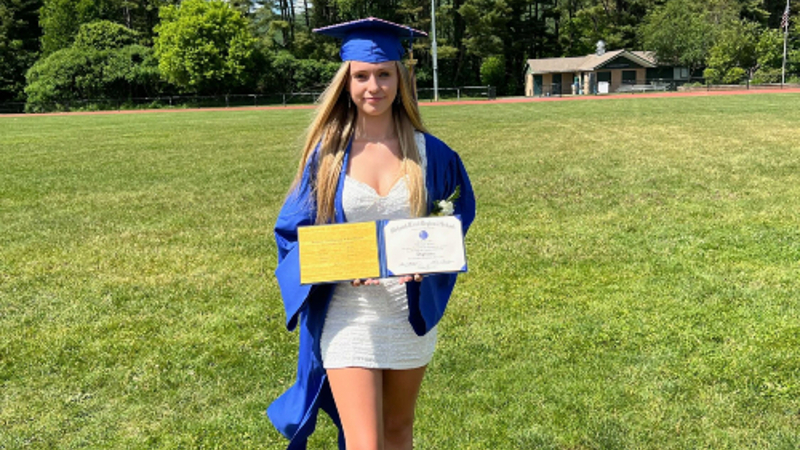
You May Also Like
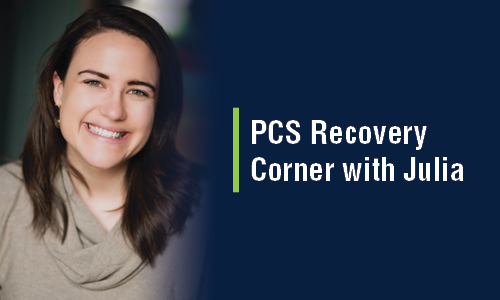
It is easy to feel misunderstood with PCS. CLF's Julia Manning gets it. She suffered from PCS for several years and opens up about the hardest parts, plus the coping strategies and treatment tips she picked up along the way.
PCS Recovery Corner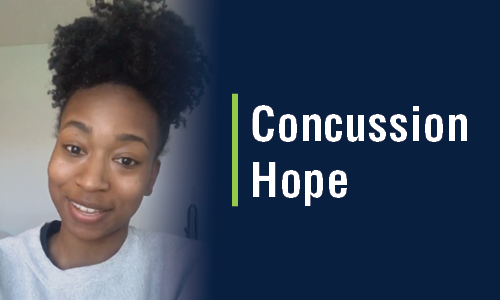
Your PCS will get better, and recovery is possible. Holding on to that hope is key. Get inspired with video messages from dozens of others who have battled PCS.
Concussion Hope Videos